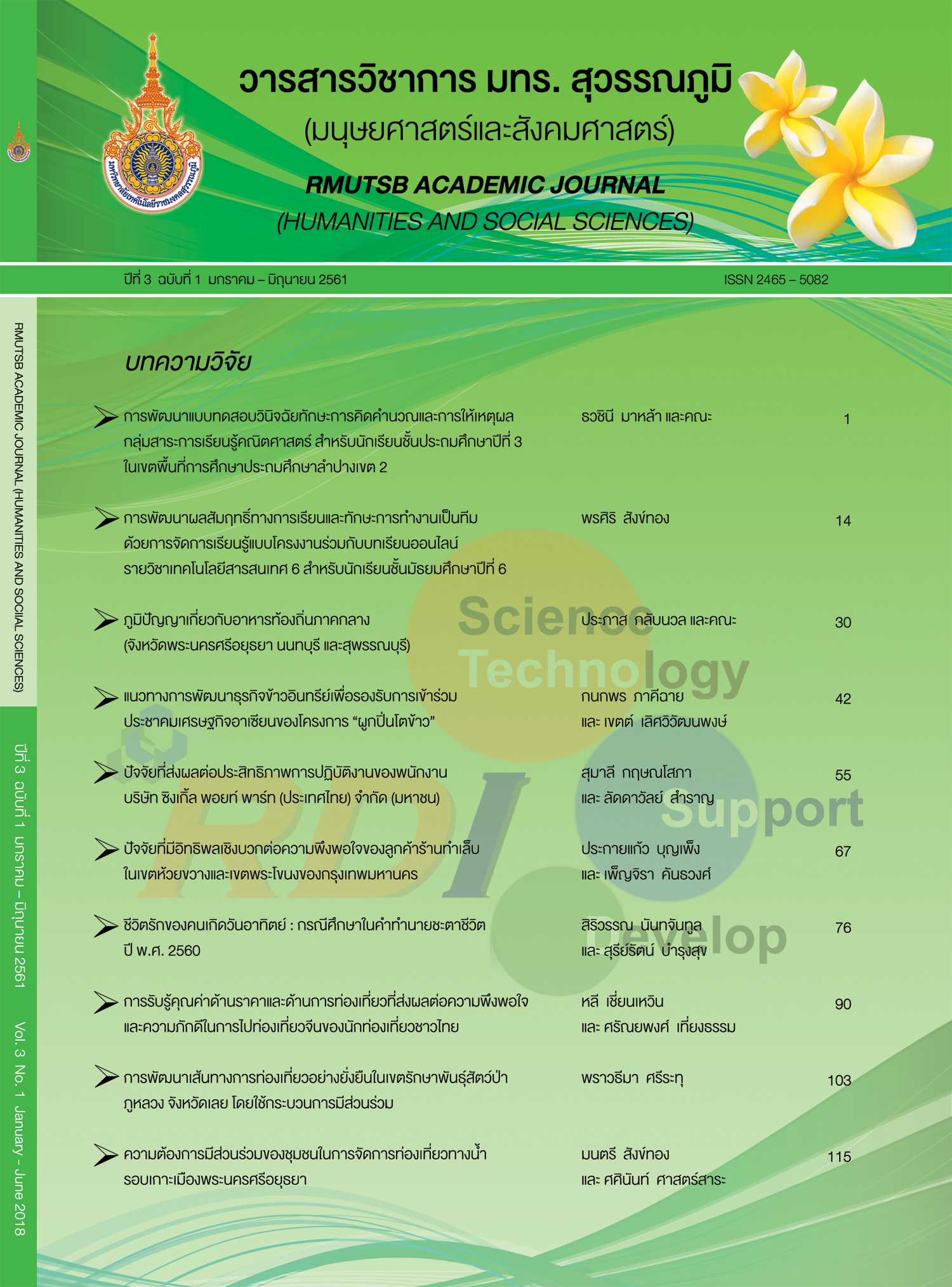“Pookpintokao Project” an approach for organic rice product business development towards AEC
Main Article Content
Abstract
The objectives of this research aim to study the factors that influences the organic rice product, and to suggest guidelines of organic rice product business towards AEC: A case study of “Pookpintokao Project” using diamond model. This research employed in-depth interview questionnaires among three groups i.e. 1) Network leaders of “Pookpintokao Project” 2) sixty-seven organic rice business participants and 3) four volunteers consumers who participate in “Pookpintokao Project” who willing to provide information using snowball sampling.
The findings revealed that factors influenced the organic rice business potential were branding of the network, the connectivity among product development unit, food processing unit and transportation. The key competitiveness were their high yield rice breed, good knowledge at organic rice plantation, production system, food processing, marketing and authorization to pricing. This project could apply the modern technology for production, food processing, and distribution management as well as the government support.
The guidelines to strategically develop organic rice product business “Pookpintokao Project” towards AEC should emphasized in 5 aspects as followed: 1) empower the network in order to construct clear management strategies, connect the related parties to leap frog supply chain innovation together 2) Develop research for technology advancement to meet market demand 3) Develop products, type of productions and production systems to match global standard 4) Create good image for the products through eco-tourism promotion for product value added; and 5) Promote new markets and add distribution channels.
Article Details
References
นฤมล คงทน. 2549. การพัฒนาการรวมกลุ่มเป็นเครือข่ายวิสาหกิจ (คลัสเตอร์) เพื่อเพิ่มขีดความสามารถในการแข่งขัน : กรณีศึกษา : คลัสเตอร์แปรรูปข้าว จังหวัดพิษณุโลก. ค้นคว้าอิสระ วิทยาศาสตร-มหาบัณฑิต. วิทยาลัยนวัตกรรมอุดมศึกษา มหาวิทยาลัยธรรมศาสตร์.
รสดา เวษฎาพันธุ์ และสุมาลี สันติพลวุฒิ. 2555. แนวทางการพัฒนา OTOP ในเขตภาคกลาง. น. 224-231. ใน: การประชุมทางวิชาการของมหาวิทยาลัยเกษตรศาสตร์ ครั้งที่ 50, 31 มกราคม - 2 กุมภาพันธ์ 2555. มหาวิทยาลัยเกษตรศาสตร์.
วิฑูรย์ ปัญญากุล. 2558. ภาพรวมเกษตรอินทรีย์ไทย 2556-57. (ระบบออนไลน์). แหล่งข้อมูล: http://www.greennet.or.th/sites/
default/files/Thai%20OA%2013-14.pdf. (7 มกราคม 2559).
Porter, M.E. 1998. The competitive advantage of nation. Free Press, New York.


